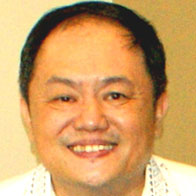At the last general election, Barisan Nasional (BN) won only 40% of the popular votes for the peninsula and 85 of the 165 federal seats it contested.
 The Borneo states of Sabah and Sarawak secured BN a victory with a haul of 48 of the 57 seats up for grabs (including the Federal Territory of Labuan), winning 56% of the popular votes.
The Borneo states of Sabah and Sarawak secured BN a victory with a haul of 48 of the 57 seats up for grabs (including the Federal Territory of Labuan), winning 56% of the popular votes.
Unless there is a major shift in voters sentiment between now and the 14th general election due in 2018, Sabah and Sarawak will continue to be BN’s fixed deposit to win GE14.
If any states should feel aggrieved by BN’s rule it should have been these two states who saw much of their rich natural resources extracted away by the federal government and peninsula-based corporations.
And for Sabah, the social and electoral upheavals brought about by the citizenship for votes scheme called Project IC by the BN government agencies and officials are still being felt.
What are the reasons for BN’s iron grip on the two Borneo states and can their hold be broken or at least loosened?
BN’s sterling performance in winning 84% of the seats despite securing only 56% of the popular votes is not solely due to the effect of malapportioned or gerrymandered constituencies.
Multi-cornered contests for seats in Sabah assured victories for BN in at least 5 federal seats where BN’s share of the votes were less than 50%. There were allegations that many were paid to contest so that the opposition votes would be split.
A lack of cohesion and unity among the opposition parties in both states seems to confirm voters’ suspicion that the opposition parties are happy to remain as loyal opposition and are not ready to govern.
The combination of money politics and threat cannot be underestimated in poor rural communities.
The interweaving of village administration and political patronage through appointed village heads (ketua kampung) in Sabah or “tuai rumah” in Sarawak’s longhouses has enabled BN to keep a stranglehold on rural communities.
Unless communities are allowed to elect their own village heads or tuai-tuai rumah, freedom to vote is nothing more than a pipedream.
The announcement by the Deputy Prime Minister Datuk Seri Dr Ahmad Zahid Hamidi last June that 1.5 million Bangladeshis will be brought in over three years to work in the various sectors gave many that “deva ju” feeling, that it would be a repeat of Sabah’s Project IC.
While the need for cheap foreign labour to help our industries stay competitive internationally may be justified, one can’t help wondering if they would be deployed as “voters” in time for GE14.
What would it take to cause BN to lose their Borneo fixed deposit? Make no mistake about it, there is little chance in the near future that either states would fall to the opposition.
The most the opposition can hope for is to take enough seats from Borneo to form a new federal government after GE14.
The goodwill projects of the Democratic Action Party (DAP) to bring clean running water, electricity and roads to the interiors of Sabah and Sarawak are definitely a step in the right direction.
But its hoped for returns may be long-term given the stranglehold that BN has over the village heads and they in turn over the villagers. Nonetheless, the exercise would not be futile as many seeds of goodwill would have been sown for future harvest.
Come election time, the presence of trustworthy polling, counting and booth agents are crucial to minimise the incidents of electoral fraud. Attempts to buy votes with cash or gifts, bribing voters with promise of development or threat of withholding it, must be exposed.
What opposition candidates lacked in financial resources, they could make up with incorruptible volunteers who could serve as eyes, ears and mouth for them. Greater efforts to mobilise volunteers with the help of civil society organisations would be needed.
There may be attempts to lure the East Malaysian BN MPs and candidates with promise of noble ideas like the full acceptance of the 18/20 points pre-Malaysia agreements, the granting of more autonomy, more oil royalty, believing that these leaders still have the people’s best interest at heart but I for one do not.
Looking at how these East Malaysian MPs voted, almost blindly, for the passing of the National Security Council Bill and a slew of other draconian bills, one should not be surprised that they would also betray their constituents by voting for the hudud law. To me, they are mere lackeys of the regime and are incapable of doing what is right.
No, we need to have a new generation of young leaders from Sabah and Sarawak who would say that five decades of injustices and deprivation of development is enough and that it is time to restore lost dignity to the people of Borneo.
The Borneo fixed deposit of BN may yet turn out to be the down payment for a brighter and more equitable Malaysia for all. – January 11, 2016.
* This is the personal opinion of the writer or publication and does not necessarily represent the views of The Malaysian Insider.


Comments
Please refrain from nicknames or comments of a racist, sexist, personal, vulgar or derogatory nature, or you may risk being blocked from commenting in our website. We encourage commenters to use their real names as their username. As comments are moderated, they may not appear immediately or even on the same day you posted them. We also reserve the right to delete off-topic comments